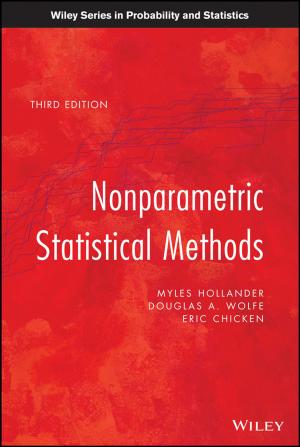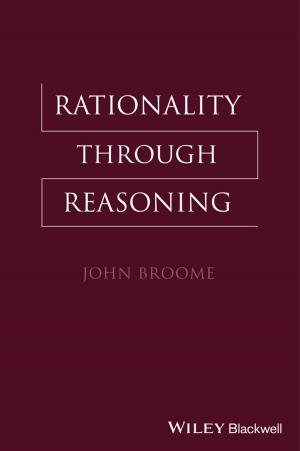Algorithms and Ordering Heuristics for Distributed Constraint Satisfaction Problems
Nonfiction, Computers, Programming| Author: | Mohamed Wahbi | ISBN: | 9781118753422 |
| Publisher: | Wiley | Publication: | July 1, 2013 |
| Imprint: | Wiley-ISTE | Language: | English |
| Author: | Mohamed Wahbi |
| ISBN: | 9781118753422 |
| Publisher: | Wiley |
| Publication: | July 1, 2013 |
| Imprint: | Wiley-ISTE |
| Language: | English |
DisCSP (Distributed Constraint Satisfaction Problem) is a general framework for solving distributed problems arising in Distributed Artificial Intelligence.
A wide variety of problems in artificial intelligence are solved using the constraint satisfaction problem paradigm. However, there are several applications in multi-agent coordination that are of a distributed nature. In this type of application, the knowledge about the problem, that is, variables and constraints, may be logically or geographically distributed among physical distributed agents. This distribution is mainly due to privacy and/or security requirements. Therefore, a distributed model allowing a decentralized solving process is more adequate to model and solve such kinds of problem. The distributed constraint satisfaction problem has such properties.
Contents
Introduction
Part 1. Background on Centralized and Distributed Constraint Reasoning
- Constraint Satisfaction Problems
- Distributed Constraint Satisfaction Problems
Part 2. Synchronous Search Algorithms for DisCSPs - Nogood Based Asynchronous Forward Checking (AFC-ng)
- Asynchronous Forward Checking Tree (AFC-tree)
- Maintaining Arc Consistency Asynchronously in Synchronous Distributed Search
Part 3. Asynchronous Search Algorithms and Ordering Heuristics for DisCSPs - Corrigendum to “Min-domain Retroactive Ordering for Asynchronous Backtracking”
- Agile Asynchronous BackTracking (Agile-ABT)
Part 4. DisChoco 2.0: A Platform for Distributed Constraint Reasoning - DisChoco 2.0
- Conclusion
About the Authors
Mohamed Wahbi is currently an associate lecturer at Ecole des Mines de Nantes in France. He received his PhD degree in Computer Science from University Montpellier 2, France and Mohammed V University-Agdal, Morocco in 2012 and his research focused on Distributed Constraint Reasoning.
DisCSP (Distributed Constraint Satisfaction Problem) is a general framework for solving distributed problems arising in Distributed Artificial Intelligence.
A wide variety of problems in artificial intelligence are solved using the constraint satisfaction problem paradigm. However, there are several applications in multi-agent coordination that are of a distributed nature. In this type of application, the knowledge about the problem, that is, variables and constraints, may be logically or geographically distributed among physical distributed agents. This distribution is mainly due to privacy and/or security requirements. Therefore, a distributed model allowing a decentralized solving process is more adequate to model and solve such kinds of problem. The distributed constraint satisfaction problem has such properties.
Contents
Introduction
Part 1. Background on Centralized and Distributed Constraint Reasoning
- Constraint Satisfaction Problems
- Distributed Constraint Satisfaction Problems
Part 2. Synchronous Search Algorithms for DisCSPs - Nogood Based Asynchronous Forward Checking (AFC-ng)
- Asynchronous Forward Checking Tree (AFC-tree)
- Maintaining Arc Consistency Asynchronously in Synchronous Distributed Search
Part 3. Asynchronous Search Algorithms and Ordering Heuristics for DisCSPs - Corrigendum to “Min-domain Retroactive Ordering for Asynchronous Backtracking”
- Agile Asynchronous BackTracking (Agile-ABT)
Part 4. DisChoco 2.0: A Platform for Distributed Constraint Reasoning - DisChoco 2.0
- Conclusion
About the Authors
Mohamed Wahbi is currently an associate lecturer at Ecole des Mines de Nantes in France. He received his PhD degree in Computer Science from University Montpellier 2, France and Mohammed V University-Agdal, Morocco in 2012 and his research focused on Distributed Constraint Reasoning.















